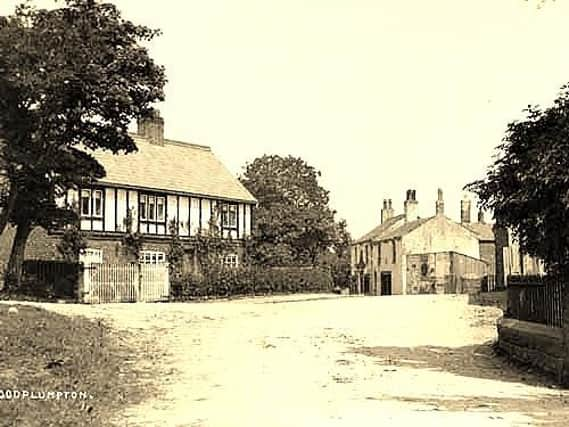Preston woman, 80, refused to reveal how she received fatal burns


In mid-June 1849 surgeon Thomas Shaw of Kirkham was asked to visit the home of farmer Thomas Smith in Woodplumpton to attend to his elderly wife Jenny who was confined to her bed.
He noticed that she had severe burns on her thighs, knees and hands and was in a feeble state. He told her husband she needed constant nursing to have her wounds dressed and Smith arranged for her sister Sarah Taylor from Preston to stay with them.
Advertisement
Hide AdAdvertisement
Hide AdDespite her sister’s nursing Jenny Smith, aged 80, passed away a week later and an inquest was held on the following Thursday at Woodplumpton, before the Preston coroner Richard Palmer. Although she had been something of a cripple for two years, after falling from a cart, it was the opinion of Mr. Shaw who carried out a post mortem that the burns had been the cause of death.
Mrs. Taylor testified that she had several times asked her sister how she had been burnt, but she refused to tell her.
Catherine Beesley, a near neighbour, told the inquest that on Whit Monday Thomas Smith, who appeared in a drunken state, had called out to her across the field asking for her help as his wife was on fire in the pit behind their house.
She found her lying in the dyke fully clothed and she pulled her out of the water, that was barely ankle deep, and assisted her into the house.
Advertisement
Hide AdAdvertisement
Hide AdShe immediately undressed her and placed her in a chair by the fire.
The flannel next to her body was smouldering when she took it off and her bed gown and apron were both a little burnt.
She asked both of them what had happened, but they refused to say.
In her opinion she could not have got to the dyke alone as she struggled to walk any distance.
Advertisement
Hide AdAdvertisement
Hide AdNone of the other witnesses could shed any light on the circumstances that led to her injuries and as mystery still surrounding the incident the inquest jury returned a verdict of ‘death being caused by her injuries; but how she became burnt is not apparent.’
The verdict led to Thomas Smith appearing at the Kirkham Petty Sessions days later accused of causing or hastening the death of his wife.
Amongst the witnesses was Alice Proctor, another sister of the deceased, who stated that her sister had told her that the accused and herself were sitting by the fireside when he got hold of her with both arms and pulled her from her chair on to the fender and then on to the floor.
He then put some burning coals out of the grate on her knee. They blazed up, and her handkerchief and bed gown caught fire. She begged and pleaded with him to put it out and as she began to scream he trailed her out and tossed her into the watery ditch.
Advertisement
Hide AdAdvertisement
Hide AdMrs. Proctor’s son-in-law P.C. Michael Mulkay was the next witness and he told the court that he had asked the deceased how she had got burnt.
Stating that she had said she would not tell, as she wanted to leave the world quietly, and did not want her husband to be in trouble.
Convinced that there was sufficient evidence the magistrates committed Smith to take his trial for killing and slaying at the next Lancaster Assizes, allowing bail until his court appearance.
The Summer Assizes took place in early August 1849 before Mr. Justice John Patteson.
Advertisement
Hide AdAdvertisement
Hide AdMr. Whigham prosecuted and the evidence given at the earlier hearings was submitted.
However, His Lordship ruled that the evidence as to what Jenny Smith had told the witnesses could not be received as a dying declaration.
Consequently he directed the jury to return a not guilty verdict, which they did and Smith was released from custody.